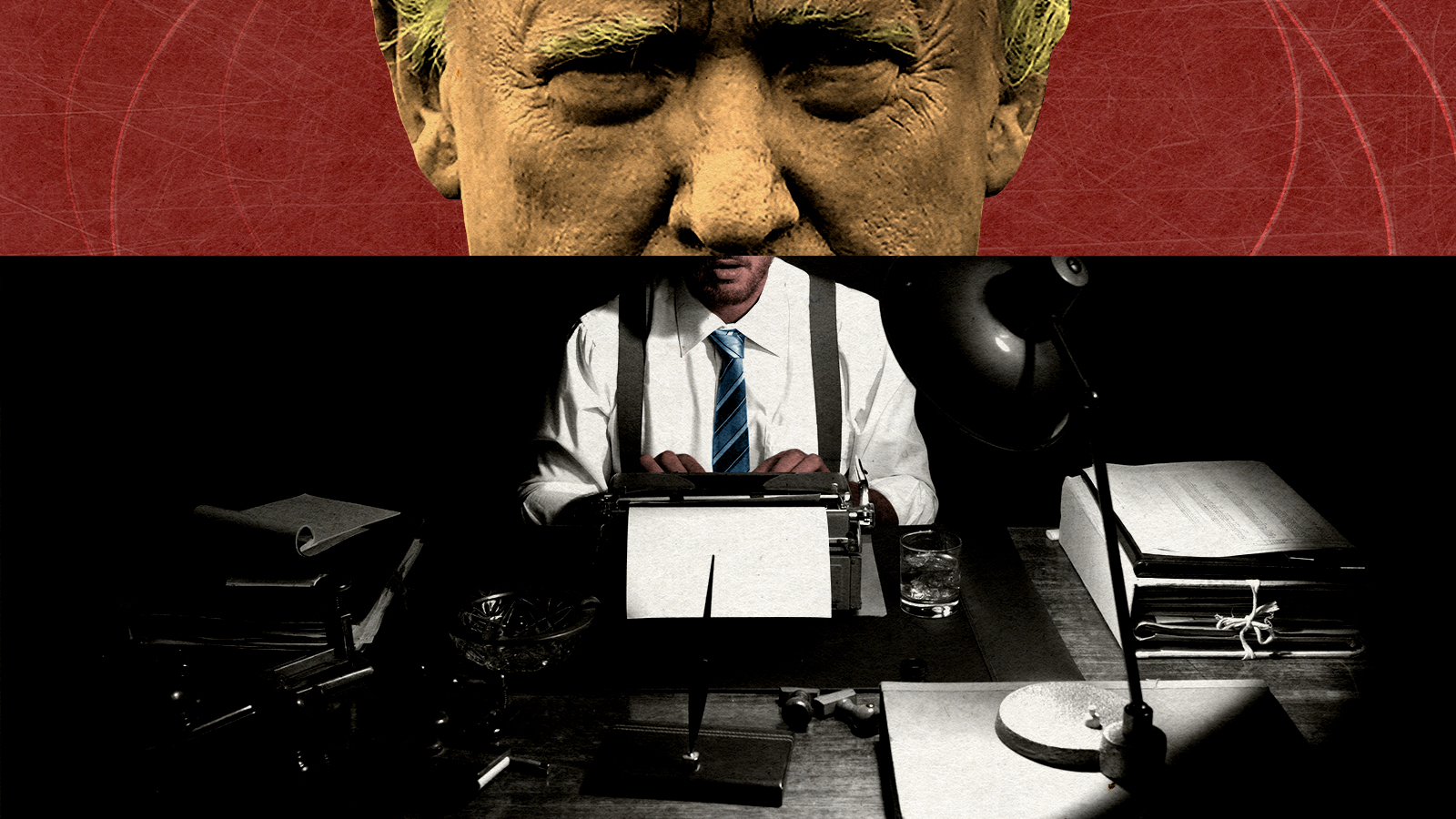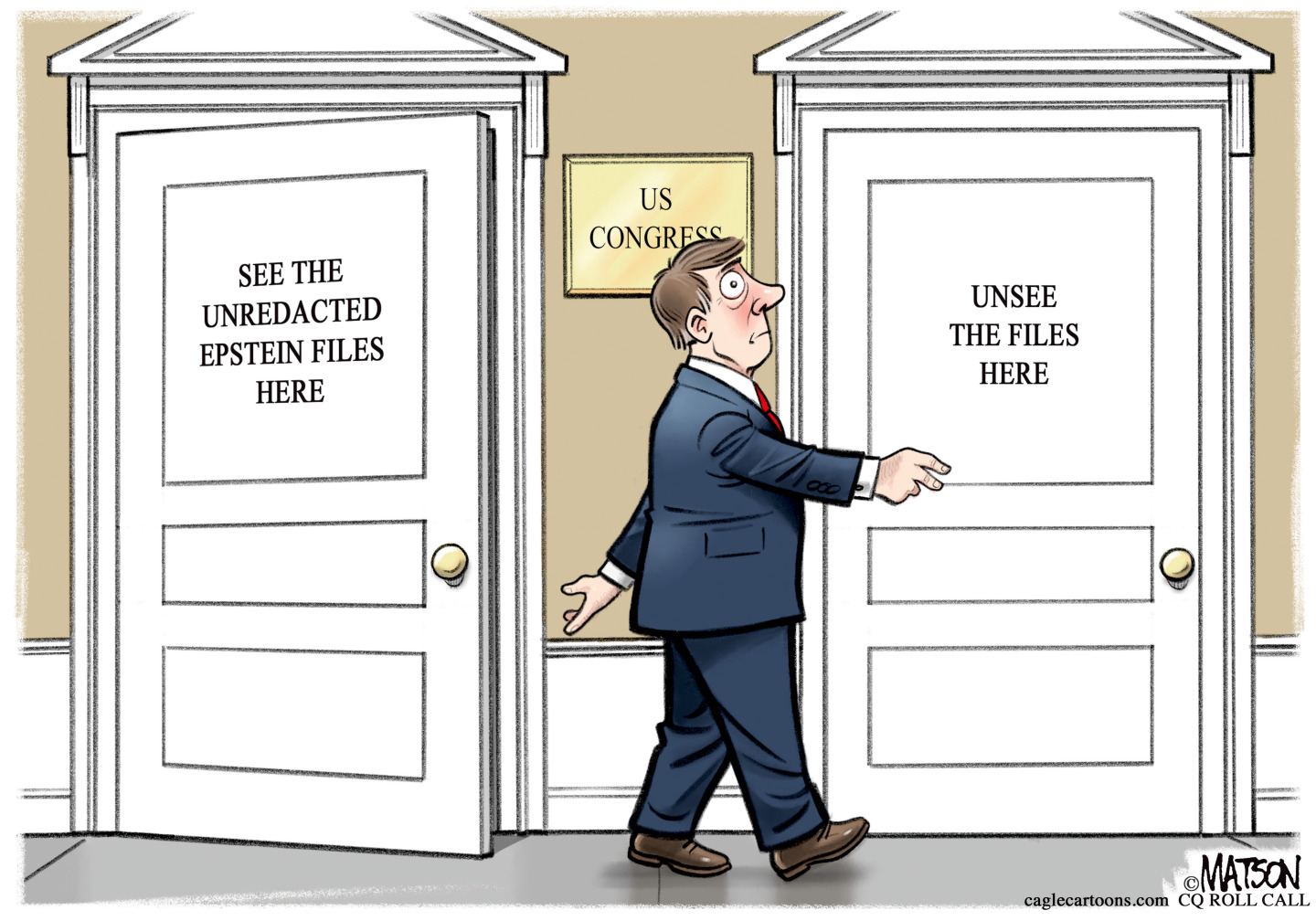Journalists can't save American democracy


A free daily email with the biggest news stories of the day – and the best features from TheWeek.com
You are now subscribed
Your newsletter sign-up was successful
Ever since Donald Trump's shocking victory in the 2016 presidential race, a debate has been raging among mainstream journalists over the media's role in paving the way for the demagogue's win. With Trump sounding very much like he intends to make another run for the White House in 2024 and polls indicating he will easily win his party's nomination if he does, this argument has surged to life once again.
For Washington Post columnist Dana Milbank, media critic Jay Rosen, and others, the stakes are obvious and enormous. Trump poses an existential threat to American democracy. Given that reality, aspiring to neutrality between the parties ends up contributing to the realization of the worst-case scenario. According to Milbank, that's already happening, with coverage of Democrat Joe Biden rivaling the negativity that characterized stories about Trump's time in the White House. It would be much better for members of the media to do their jobs with a proper sense of proportion, consistently describing the danger Trump and his party represents, placing them in a category distinct from whatever faults the Biden administration displays, and actively becoming "partisans for democracy."
On the other side of argument, Ross Douthat of The New York Times argues that this view of news coverage will only increase the appeal of right-wing populism. Because "suspicion of the establishment is precisely what's generating support for populism in the first place," rallying the establishment behind one of the two parties won't succeed in suppressing the populist insurgency. "Instead, you need to tell the truth about populism's dangers while convincing skeptical readers that you can be trusted to describe reality in full."
The Week
Escape your echo chamber. Get the facts behind the news, plus analysis from multiple perspectives.

Sign up for The Week's Free Newsletters
From our morning news briefing to a weekly Good News Newsletter, get the best of The Week delivered directly to your inbox.
From our morning news briefing to a weekly Good News Newsletter, get the best of The Week delivered directly to your inbox.
If forced to choose between those two positions, I incline toward Douthat's side of the debate. I fear that if mainstream media outlets become more openly partisan, they will lose even more trust and authority, and end up being taken seriously only by those who already agree with them about the threat of the populist right.
Yet I fear that even Douthat is being more than a little naïve about our fractured and polarized epistemic reality. What counts as a scandal worthy of coverage? Which ones are huge and which are trivial? How much time and attention should be devoted to which kinds of political corruption? Douthat's column presumes that the answers to these questions are fairly obvious, that journalists should cover them accordingly, and that if they don't, conservative viewers will see this as further evidence of media bias and untrustworthiness.
That might have been true in 1998. But in 2021, it's beside the point. The right's media ecosystem actively encourages its audience to view any and all mainstream coverage that makes Republicans look bad as evidence of bias and bad faith. This same ecosystem treats any and all mainstream coverage of Democrats that doesn't savage them as infected by hypocrisy and double standards. These judgments are made prior to any open-minded assessment of the facts in particular cases.
In that kind of tribal and trustless environment, it may already be too late for mainstream journalists to demonstrate their fairness — let alone save American democracy.
A free daily email with the biggest news stories of the day – and the best features from TheWeek.com
Damon Linker is a senior correspondent at TheWeek.com. He is also a former contributing editor at The New Republic and the author of The Theocons and The Religious Test.
-
 US to send 200 troops to Nigeria to train army
US to send 200 troops to Nigeria to train armySpeed Read Trump has accused the West African government of failing to protect Christians from terrorist attacks
-
 Grand jury rejects charging 6 Democrats for ‘orders’ video
Grand jury rejects charging 6 Democrats for ‘orders’ videoSpeed Read The jury refused to indict Democratic lawmakers for a video in which they urged military members to resist illegal orders
-
 Political cartoons for February 11
Political cartoons for February 11Cartoons Wednesday's political cartoons include erasing Epstein, the national debt, and disease on demand
-
 How are Democrats trying to reform ICE?
How are Democrats trying to reform ICE?Today’s Big Question Democratic leadership has put forth several demands for the agency
-
 Big-time money squabbles: the conflict over California’s proposed billionaire tax
Big-time money squabbles: the conflict over California’s proposed billionaire taxTalking Points Californians worth more than $1.1 billion would pay a one-time 5% tax
-
 Did Alex Pretti’s killing open a GOP rift on guns?
Did Alex Pretti’s killing open a GOP rift on guns?Talking Points Second Amendment groups push back on the White House narrative
-
 Is Alex Pretti shooting a turning point for Trump?
Is Alex Pretti shooting a turning point for Trump?Today’s Big Question Death of nurse at the hands of Ice officers could be ‘crucial’ moment for America
-
 Washington grapples with ICE’s growing footprint — and future
Washington grapples with ICE’s growing footprint — and futureTALKING POINTS The deadly provocations of federal officers in Minnesota have put ICE back in the national spotlight
-
 Halligan quits US attorney role amid court pressure
Halligan quits US attorney role amid court pressureSpeed Read Halligan’s position had already been considered vacant by at least one judge
-
 Trump’s Greenland ambitions push NATO to the edge
Trump’s Greenland ambitions push NATO to the edgeTalking Points The military alliance is facing its worst-ever crisis
-
 Why is Trump threatening defense firms?
Why is Trump threatening defense firms?Talking Points CEO pay and stock buybacks will be restricted
